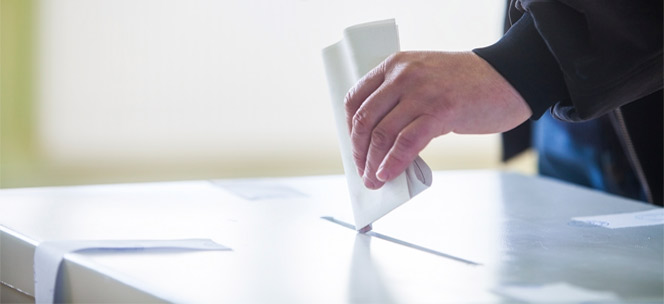A referendum is necessary for electoral reform

A referendum is the best way to reform the way Canadians vote. Is it the easiest way? No. But is it the best way? Absolutely.
If Prime Minister Justin Trudeau wants to strengthen Canadian democracy, he must hold a referendum before reforming the new way we hold elections.
Strengthening government accountability is a central goal for the Canadian Taxpayers Federation. We’ve supported electoral reform in the past. Even though we campaigned hard for change in provincial electoral reform referendums and lost, we’ll never use a loss as an excuse to take the easy way out.
We are unequivocal in our belief that the people have a right to vote on electoral reform, but the anti-referendum side makes some compelling arguments. The Winnipeg Free Press articulated that position well in its July 12 editorial.
“A referendum is most likely to reject any conceivable reform plan because there are many possible systems, all of which have some merit and each of which will find supporters,” stated the Free Press editorial board. “Electoral reform attempts in British Columbia in 2005 and 2009 and in Ontario in 2007 were blocked by negative referendums — not because the existing system is perfect but because reaching agreement on a new one is difficult.”
This assumes unengaged voters will oppose change because a simple yes-or-no question leaves the nature of the proposed change unclear. But does that mean voters are unqualified to make a decision or does it show that those advocating for change need to do a better job?
New Zealand showed the world how to implement electoral change. In 1992, it held a referendum. But that referendum included an important innovation: instead of asking one question, it asked two. First, it asked New Zealanders whether they wanted electoral change. Second, it asked what kind of electoral change they wanted. New Zealanders voted for change and identified their choice for a new system.
Even then, New Zealand did not settle for the easy way. In 1993, it held a second referendum asking voters to chose between the current system and well defined alternative. Again, New Zealanders voted for change.
New Zealand proved it’s the gold standard for implementing electoral reform when it held a third referendum in 2011 to ask voters if they wanted to go back to the old system. Voters reaffirmed their support for the new system.
Consider the alternative to a referendum. Members of Parliament could develop a new system and the majority Liberal government could ram it through the House of Commons. Reforms could be implemented without gaining the explicit consent of voters.
But what then? Voters who are denied the opportunity to engage with the issue through a referendum will be left to wrestle with an unfamiliar system during an actual election. How could that be an optimal outcome?
Critics rightly point out that numerous electoral changes have been made without referendums. The voting age was lowered. Race-based exclusions were removed. Women won the right to vote.
But what if referendums had been used to address some of these historic injustices? British Columbia put the issue of women’s suffrage to a referendum in 1916. Voters recognized women’s right to vote by a margin of 43,619 to 18,604 even though only men cast ballots.
We need a referendum to get the best reforms and make them durable, but we also need a referendum to prevent harmful unintended consequences. The Free Press points out that “no party has ever succeeded in keeping itself in power forever by electoral jiggery-pokery.” This is true, but it’s a reason for gratitude to our forerunners rather than complacency about our future.
Even if Prime Minister Trudeau has pure motives and resists the temptation to pick a new system for partisan advantage, what happens if a bad prime minister someday wants to implement bad changes? While Canada has been blessed with a stable government, history is full of examples illustrating the fragility of democracy. A referendum will remind Canada’s leaders, both present and future, that the power in our democracy must always reside with the people.
The CTF will always work to strengthen government accountability. But we’ll never compromise on our belief that the people have the right to be heard. Let’s look at options to reform the way we vote and let’s do it the right way with a referendum.